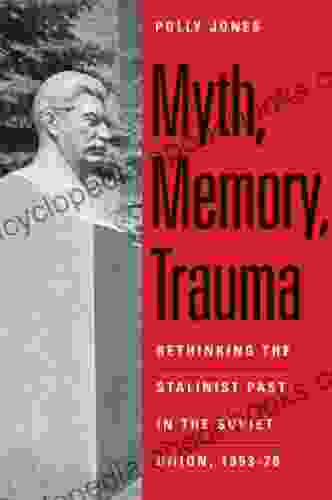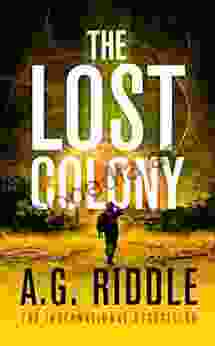Unveiling the Hidden Truths: Rethinking the Stalinist Past in the Soviet Union 1953-70

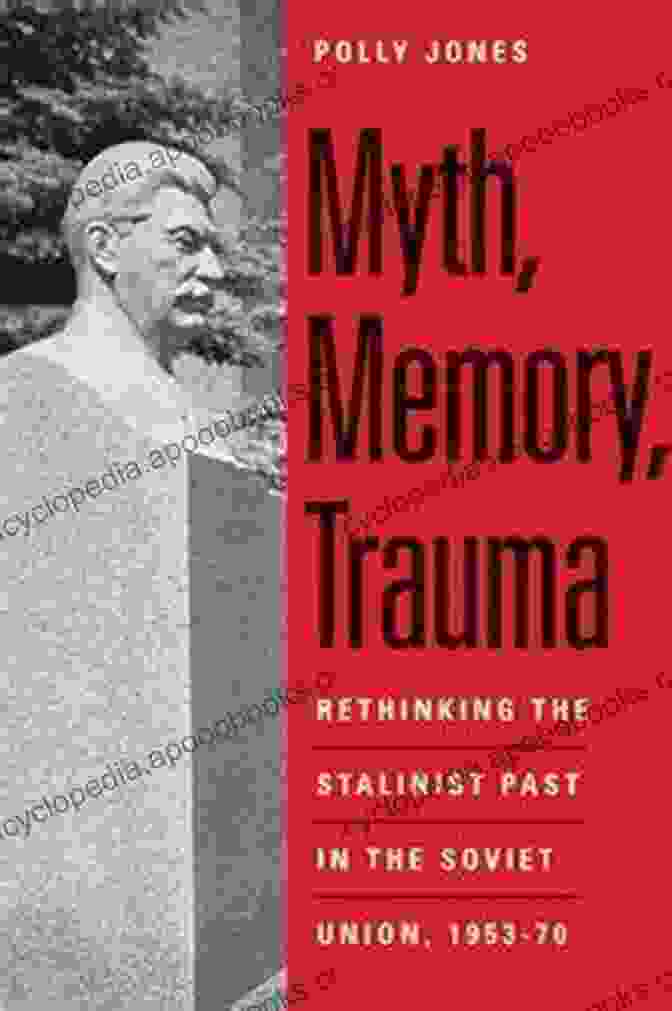
4.5 out of 5
| Language | : | English |
| File size | : | 1435 KB |
| Text-to-Speech | : | Enabled |
| Screen Reader | : | Supported |
| Enhanced typesetting | : | Enabled |
| Word Wise | : | Enabled |
| Print length | : | 375 pages |
| X-Ray for textbooks | : | Enabled |
Delving into a Complex Historical Era
The years following Joseph Stalin's death in 1953 marked a profound period of change and reevaluation in the Soviet Union. The Stalinist legacy, characterized by its repressive measures and totalitarian grip, cast a long shadow over the nation's political, social, and cultural landscape. However, as the country emerged from the Stalinist era, a gradual process of rethinking and reassessment took hold, leading to significant shifts in Soviet society.
Khrushchev's Reforms and De-Stalinization
In 1956, Nikita Khrushchev delivered his "Secret Speech" at the 20th Congress of the Communist Party of the Soviet Union. This speech denounced Stalin's "cult of personality" and initiated a process of de-Stalinization. Khrushchev's reforms aimed to dismantle Stalin's repressive apparatus, rehabilitate victims of the Great Purge, and introduce a degree of liberalization in various spheres of Soviet life.
Political reforms included the establishment of collective leadership and the reduction of the power of the secret police. Social reforms focused on improving living standards, expanding access to education and healthcare, and reducing inequality. Cultural reforms witnessed a relaxation of censorship and the emergence of a "Cultural Thaw," which allowed for greater artistic expression and intellectual debate.
Brezhnev's Era and the Return to Stagnation
After Khrushchev was removed from power in 1964, Leonid Brezhnev assumed leadership of the Soviet Union. Brezhnev's era was characterized by a return to a more conservative and authoritarian approach to governance. While some aspects of de-Stalinization continued, political and cultural freedoms were gradually curtailed. Socialist Realism once again became the dominant artistic style, and dissent was met with increased repression.
This period also witnessed a slowdown in economic growth and a rise in corruption. The Soviet Union's ambitious space program and assertive foreign policy strained the country's resources and contributed to a sense of stagnation and complacency.
Dissent and Conformity Amidst Change
The post-Stalin era was not without its challenges. Despite the reforms and liberalization of the Khrushchev period, dissent and opposition to the Soviet regime persisted. Intellectuals, artists, and activists emerged to criticize the government's policies and advocate for greater freedoms. This dissent, however, was met with varying degrees of repression and censorship.
Alongside dissent, a significant portion of Soviet society remained conformist and supportive of the regime. They benefited from the improvements in living standards and social welfare, and they viewed the Soviet Union as a beacon of socialism and a powerful force in the world.
The Legacy of the Stalinist Era
The rethinking of the Stalinist past in the Soviet Union had a profound impact on the country's political, social, and cultural development. The process of de-Stalinization, while incomplete, helped to expose the crimes and excesses of the Stalinist regime and fostered a greater awareness of human rights and civil liberties.
However, the legacy of the Stalinist era continued to cast a shadow over Soviet society. The authoritarianism and fear of the Stalinist years left a lasting impact on the country's political culture and its citizens' relationship with the state.
Continuing Relevance in Contemporary Russia
The rethinking of the Stalinist past remains a relevant issue in contemporary Russia. The debate over Stalin's legacy and the interpretation of the Soviet era continues to shape Russian politics and society. The unresolved questions about the balance between authority and freedom, the role of the state in individual lives, and the search for a historical narrative that reconciles the Soviet past with a democratic present all point to the enduring significance of this pivotal period in Russian history.
The period of rethinking the Stalinist past in the Soviet Union from 1953 to 1970 was a complex and multifaceted process. It involved political reforms, social changes, cultural shifts, and ongoing debates about dissent and conformity. Understanding this era is crucial for comprehending the complexities of Soviet society and the challenges facing the country as it emerged from Stalin's totalitarian rule.
The book "Rethinking the Stalinist Past in the Soviet Union 1953-70" provides a comprehensive and insightful analysis of this transformative period. It draws on a wide range of sources and perspectives to offer a nuanced and balanced account of the major shifts that occurred in Soviet society during these years.
Whether you are a student of Soviet history, a general reader interested in understanding the complexities of the past, or a citizen of contemporary Russia seeking to grapple with the legacy of the Stalinist era, this book is an invaluable resource. It offers a fascinating journey into a pivotal period that continues to shape the present and inform our understanding of power, freedom, and the human condition.
4.5 out of 5
| Language | : | English |
| File size | : | 1435 KB |
| Text-to-Speech | : | Enabled |
| Screen Reader | : | Supported |
| Enhanced typesetting | : | Enabled |
| Word Wise | : | Enabled |
| Print length | : | 375 pages |
| X-Ray for textbooks | : | Enabled |
Do you want to contribute by writing guest posts on this blog?
Please contact us and send us a resume of previous articles that you have written.
 Book
Book Novel
Novel Page
Page Chapter
Chapter Text
Text Story
Story Genre
Genre Reader
Reader Library
Library Paperback
Paperback E-book
E-book Magazine
Magazine Newspaper
Newspaper Paragraph
Paragraph Sentence
Sentence Bookmark
Bookmark Shelf
Shelf Glossary
Glossary Bibliography
Bibliography Foreword
Foreword Preface
Preface Synopsis
Synopsis Annotation
Annotation Footnote
Footnote Manuscript
Manuscript Scroll
Scroll Codex
Codex Tome
Tome Bestseller
Bestseller Classics
Classics Library card
Library card Narrative
Narrative Biography
Biography Autobiography
Autobiography Memoir
Memoir Reference
Reference Encyclopedia
Encyclopedia Lily Foster
Lily Foster Rex Stout
Rex Stout Vickie Kraft
Vickie Kraft Carol Peterson
Carol Peterson Amanda Smith
Amanda Smith H Rider Haggard
H Rider Haggard Telma Rocha
Telma Rocha Christopher Cartwright
Christopher Cartwright Barry Mcbride
Barry Mcbride 42nd Edition Kindle Edition
42nd Edition Kindle Edition A J Hill
A J Hill A Bandey
A Bandey Stuart Coupe
Stuart Coupe Richard Wilbur
Richard Wilbur Keiji Sano
Keiji Sano Martha Deeringer
Martha Deeringer Wolfgang Kopp
Wolfgang Kopp Sharon Michaels
Sharon Michaels Anita Desai
Anita Desai Satit Soranastaporn
Satit Soranastaporn
Light bulbAdvertise smarter! Our strategic ad space ensures maximum exposure. Reserve your spot today!
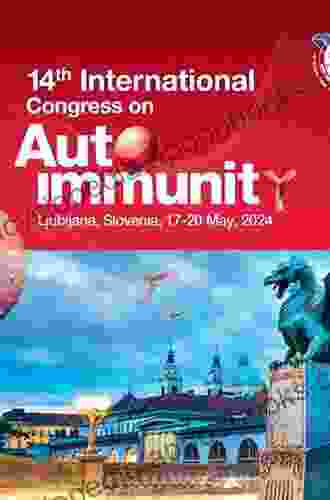
 George Bernard Shaw14th International Conference TAP 2024: Shaping the Future of Urban Transport
George Bernard Shaw14th International Conference TAP 2024: Shaping the Future of Urban Transport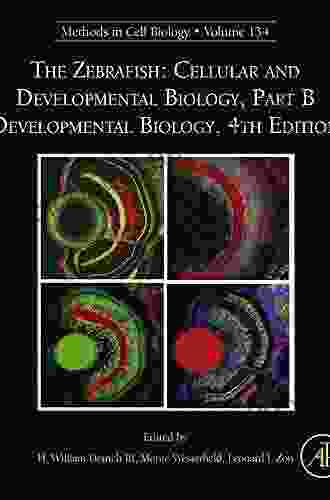
 Matthew WardCellular and Developmental Biology Part 1 ISSN 134: Unlocking the Secrets of...
Matthew WardCellular and Developmental Biology Part 1 ISSN 134: Unlocking the Secrets of...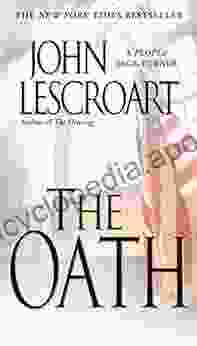
 Ivan TurgenevThe Oath Dismas Hardy: An Unforgettable Journey into the Heart of Redemption...
Ivan TurgenevThe Oath Dismas Hardy: An Unforgettable Journey into the Heart of Redemption...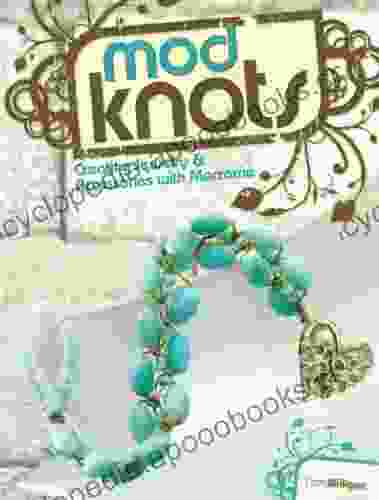
 Corbin PowellUnleash Your Creativity with "Mod Knots: Creating Jewelry and Accessories...
Corbin PowellUnleash Your Creativity with "Mod Knots: Creating Jewelry and Accessories... Reed MitchellFollow ·15.4k
Reed MitchellFollow ·15.4k Edgar HayesFollow ·3.6k
Edgar HayesFollow ·3.6k Edward ReedFollow ·4.2k
Edward ReedFollow ·4.2k Jimmy ButlerFollow ·12k
Jimmy ButlerFollow ·12k Felipe BlairFollow ·8.8k
Felipe BlairFollow ·8.8k Andrew BellFollow ·12.3k
Andrew BellFollow ·12.3k Brian BellFollow ·16.9k
Brian BellFollow ·16.9k Alec HayesFollow ·10.9k
Alec HayesFollow ·10.9k

 Jacob Hayes
Jacob HayesUnlock the Power of Microsoft Word: A Comprehensive Guide...
Microsoft Word is a widely used word...
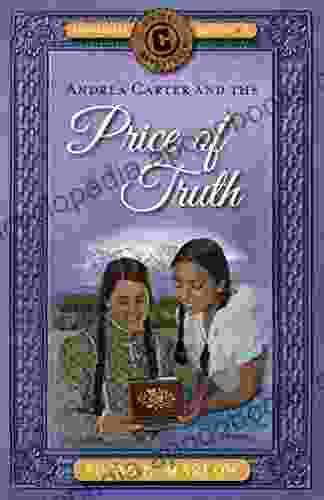
 Hunter Mitchell
Hunter MitchellAndrea Carter and the Price of Truth: A Thrilling...
Get ready for an unforgettable...

 Ivan Turner
Ivan TurnerTrading Jeff and His Dog: An Unforgettable Adventure of...
Get ready for an emotional rollercoaster...

 Langston Hughes
Langston HughesGo Viral TikTok: The Ultimate Guide to Gaining 100K...
TikTok has emerged as a social...

 Ibrahim Blair
Ibrahim BlairUnveil the Enchanting Realm of Short Fiction: Dive into...
Delve into a Literary Tapestry of...
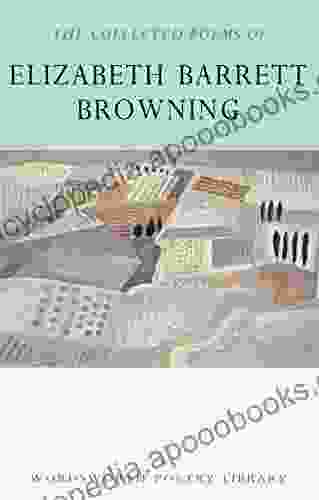
 Tennessee Williams
Tennessee WilliamsUnveil the Enchanting World of Elizabeth Barrett...
A Poetic Tapestry of Love, Loss, and...
4.5 out of 5
| Language | : | English |
| File size | : | 1435 KB |
| Text-to-Speech | : | Enabled |
| Screen Reader | : | Supported |
| Enhanced typesetting | : | Enabled |
| Word Wise | : | Enabled |
| Print length | : | 375 pages |
| X-Ray for textbooks | : | Enabled |


